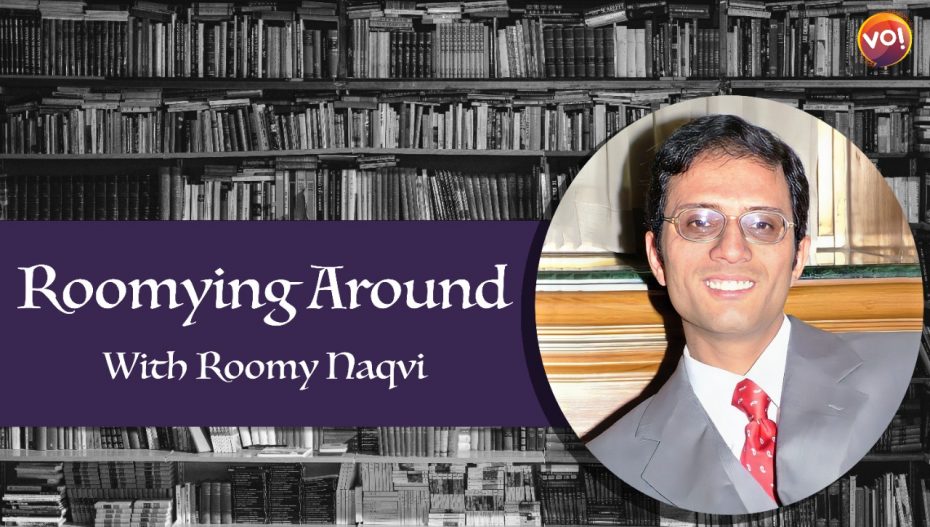I read Saul Bellow for the first time in my life as an MA student when his novel, Humboldt’s Gift was part of the American Literature paper. This was over twenty-five years ago. I took a liking to Saul Bellow almost immediately, devouring his other novels, including Herzog as well as Henderson the Rain King. Saul Bellow is wickedly funny as a novelist.
Saul Bellow (1915-2005) was a Canadian-American author. His parents had emigrated from Russia in 1913. He grew up in a Jewish household and was fluent in Yiddish. It is said that his command of Yiddish influenced his English writing. Bellow became a representative American writer, one of the important Jewish American voices, who dominated post World War II American literature.
Saul Bellow was a highly regarded writer, winning several literary prizes. He won the National Book Award thrice for The Adventures of Augie March, Herzog and Mr. Sammler’s Planet. Bellow went on to receive the Nobel Prize for Literature in 1976.
The Encyclopedia Brittanica has this to say about him, “(his) characterizations of modern urban man, disaffected by society but not destroyed in spirit”. https://www.britannica.com/biography/Saul-Bellow
Bellow was awarded the Nobel Prize “for the human understanding and subtle analysis of contemporary culture that are combined in his work.” I found Saul Bellow’s Nobel Lecture quite interesting to read: https://www.nobelprize.org/prizes/literature/1976/bellow/lecture/
I find his novella, published in 1956, Seize the Day, a powerful text in many ways. It represents a day in the life of Tommy Wilhelm, who is a failure in many ways. When we see Tommy Wilhelm, he is in his mid-forties, the company he was working for, has eased him out of his job before he attains managerial status. In his past, for seven years, he worked in Hollywood, where his ‘career’ has come to a halt after working as an extra. His father, a rich and a respectable man, has stopped giving him financial help. He is separated from his wife and his children, but she nevertheless bleeds him financially. His father does not want to do much with him and wants to enjoy his retirement in peace. Part of the novel is the conflict between the father and son, whereas the other part is the conflict between his separated wife and her demands. There is no one that Tommy Wilhelm can turn to in the entire city except Dr Tamkin, who is a charlatan and a swindler, part healer, inventor. Tamkin comes up with strange investment strategies in the stock market for Wilhelm, none of which work for Wilhelm.
—
Quote:
“When it came to concealing his troubles, Tommy Wilhelm was not less capable than the next fellow. So at least he thought, and there was a certain amount of evidence to back him up. He had once been an actor—no, not quite, an extra—and he knew what acting should be. Also, he was smoking a cigar, and when a man is smoking a cigar, wearing a hat, he has an advantage; it is harder to find out how he feels.”
— Seize the Day by Saul Bellow, page 1
—
The irony of the novella is that when Tommy Wilhelm has neither money nor social or family respect, the only person he could ask for advice is Dr Tamkin, who eases Wilhelm of his last dollars and vanishes. At the end of the novel, Dr Tamkin is nowhere to be found, Tommy’s father has died, there’s no information if his father left a will and no one recognizes Tommy at his father’s funeral. The novel ends thus:
—
Quote:
The flowers and lights fused ecstatically in Wilhelm’s blind, wet eyes; the heavy sea-like music came up to his ears. It poured into him where he had hidden himself in the center of a crowd by the great and happy oblivion of tears. He heard it and sank deeper than sorrow, through torn sobs and cries toward the consummation of his heart’s ultimate need.
— Seize the Day by Saul Bellow, last paragraph of the novel
—
In the final analysis, Dr Tamkin’s strange words to Tommy Wilhelm seem to make sense. Dr Tamkin tells him:
“The real universe. That’s the present moment. The past is no good to us. The future is full of anxiety. Only the present is real—the here-and-now. Seize the day.”
When the novel ends, one does not know what the future holds for Wilhelm, and he has been a failure in every conceivable way. Wilhelm has not committed suicide and the difficulties of his life have only worsened. There are no easy answers or resolutions either. So, may be, from that lowest point, Tommy Wilhelm might ‘seize the day’. Saul Bellow’s novel is the best description of a midlife crisis that I have ever read.











